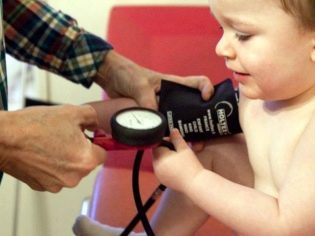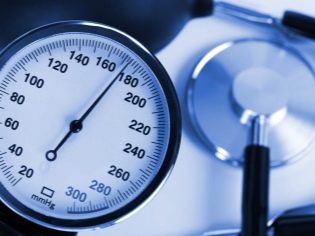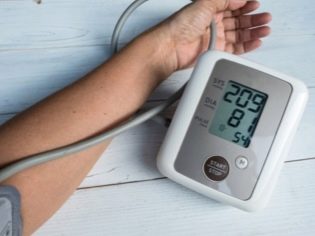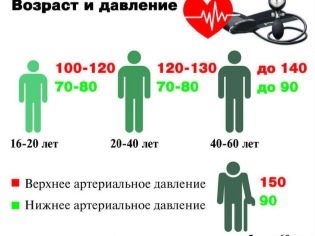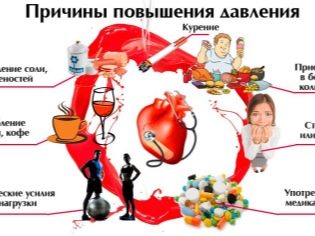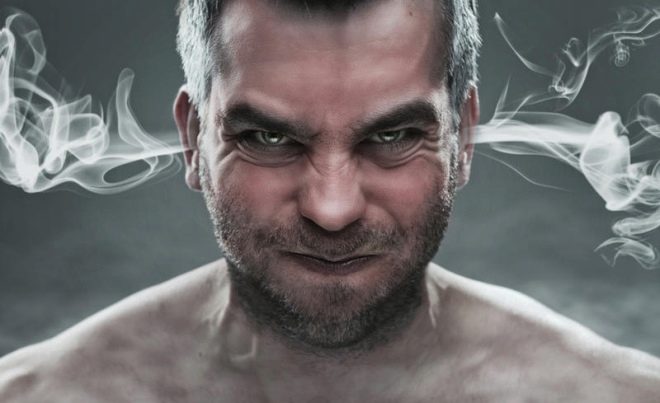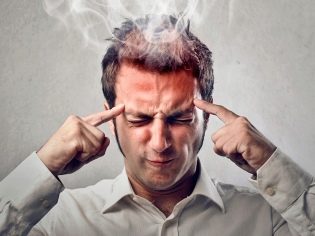High pressure psychosomatics in children and adults
Hypertension is one of the most common pathologies among children and adults. According to statistics, high pressure is observed in 35% of women and almost half of men. In childhood, hypertension is less common. However, there has been a rapid growth - over the past 5 years, the total number of purely hypertensive patients of all ages in our country has grown by 4–4.5%. Doctors predict that the number of such patients will increase.
In this article we will look at why high blood pressure is developing, from the point of view of psychosomatics.
Evidence-based medicine version
In the question of the causes of the development of hypertension, both evidence-based and psychosomatic medicine are in solidarity. Stress, nervous shocks, adverse psycho-emotional background, violations of the rules of healthy eating, work in the night shift, lack of sleep are recognized as the main factors that provoke a violation of blood pressure on the walls of blood vessels.
High in medicine is considered the pressure at which a person has a stable or regular increase in systolic and diastolic pressure up to 140/90 millimeters of mercury..
There are several successive stages of hypertension, but pressure drops are almost always characteristic of hypertensive patients. They are literally plagued by headache, attacks of which are very frequent, the feeling of "flies" before the eyes, tinnitus, unpleasant oppressive sensations in the heart, dizziness.
Hypertensive patients more often suffer from chronic fatigue, there is increased sweating. They are suffering from shortness of breath even after a minor exercise, they often complain of numbness of the extremities, swelling of the hands, face and legs.
The main danger of hypertension lies in increasing the likelihood of developing heart disease, which can be fatal. Against the background of increased pressure in childhood, an increase in intracranial pressure is often observed, which is fraught with neurological disorders.
Evidence-based medicine indicates the age factor, the presence of blood clots, eating disorders, bad habits, sleep disorders, insomnia as possible causes of hypertension. A special place among the causes is occupied by stress and psycho-emotional state disorders.
Therefore, hypertension in the last century was included in the so-called Great Classic Chicago seven psychosomatic diseases.
Psychosomatic causes
Psychosomatics allows us to understand the underlying mechanisms of the development of high pressure, since it evaluates the violation of the psycho-emotional background of a person. Treatment of hypertension may well be based on psychocorrection, which will eliminate the true causes, and with them the manifestations of the disease.
Psychoanalysts and psychologists were able to create a psychological portrait of a typical classic hypertonic. The level of blood pressure rather accurately reflects a person’s attitude to events in the outside world, hypertension is a disease of people with acute emotionality.
In other words, those who are very sensitive and tend to somewhat dramatize the situation, take responsibility for more than they are able to endure.
Often, with such a load, hyperthyroidism also develops - an increased function of the thyroid gland, which also contributes to an increase in pressure. Such people are real collectors of negative emotions. Often this is a large collection of grievances, accumulated irritation, anger, disappointment.
Some researchers in the field of psychoanalysis compare hypertension with a boiling pressure cooker - the pressure inside it surpasses it, from time to time it puffs so that it becomes noticeable to everyone.
The more negative experiences a person accumulates without being able to throw them out, the higher the pressure inside a personthat gradually begins to affect the ability of the brain to regulate the tone of the walls of blood vessels.
Patients with hypertension are very hot-tempered and irritable, touchy. At the same time, they can often be hurt not only with a word, but also with a look, which indicates high suspiciousness. They quickly move from hot-tempered speeches to apathy, they get tired. Quite often, according to psychologists, they can suddenly become aggressive, with no apparent reason.
People with choleric and melancholic temperament types are more susceptible to hypertension.. More often the problem is peculiar to men aged than to women.
Most hypertensive in business, politics, among doctors, because people in white coats are characterized by increased responsibility for the lives of others. Increased pressure affects representatives of professions with a high level of responsibility. - train drivers and pilots, air traffic controllers, directors of large enterprises and social workers, rescue workers and firefighters.
It is difficult to treat hypertension, not only because all medical drugs give only a temporary effect and have almost no effect on the root cause. It is difficult to treat hypertensive patients, as they often do not have enough patience to complete the psychotherapeutic course, and without it you can not count on a persistent and prolonged decrease in pressure.
There are no bad and good events, there is our attitude towards them. Therefore, a hypertensive person should clearly understand that only his personal attitude to events forms their characteristics - are they bad or favorable.
This is the basis of the treatment. Hypertension is vital to get rid of its set of grievances and fears, disappointments and anger. After that, not only will it be much easier to breathe, but the pressure will return to normal.
Pediatric Hypertension
In childhood, hypertension can develop under the influence of the family factor. More often hypertensive babies grow in families where the level of conflict literally rolls over. Age and heightened emotionality do not allow the child to express to adults all that has accumulated in the soul in connection with the constant scandals.
The child is unable to comprehend what is happening until a certain age, as well as to protect both his dear people - mom and dad. The more protracted the marital conflict, the greater the likelihood that the child will have problems with increased pressure.
But even in those families where there is a practice of clarifying relationships outside the presence of children, there is a chance that the child will become hypertensive. The fact is that kids intuitively feel the internal tension of their parents. The relationship of the baby with his parents is great, and the mood of adults will not erode from the crumbs, which will cause tension in the child..
Teenagers are more likely to suffer from high blood pressure. In puberty, there is a mass of their own experiences associated with the first love, the desire to please and lack of confidence in themselves, with conflicts among their peers.
If at the same time at home the situation is benevolent, there is contact with parents, then it is easier to survive the period of growing up.. But authoritarian parents who put too much pressure on a teenager, decide for him, demand unquestioning obedience and obedience, only aggravate the situation.
The likelihood of hypertension in secretive children who do not want and do not know how to express their experiences increases.If we are talking about adolescents, then hypertensive patients may manifest themselves in flashes of youthful aggression aimed at peers and parents. Almost always, children with hypertension have low self-esteem.
Opinion of famous psychologists
Canadian psychologist and teacher Liz Burbo claims that people who are used to taking too much responsibility are suffering from high blood pressure.and in any case blaming themselves for the failures.
Such self-blame makes people happy to constantly mentally return to unpleasant events and relive their personal tragedy. They themselves do not give internal stress to weaken, and pressure - to decrease.
Psychotherapist and homeopath Valery Sinelnikov writes that people who cannot accept this or that absolutely obvious situation create hypertension., which gives rise to a heavy long-term internal conflict.
Men suffer from high blood pressure more often than women. Since education, according to the doctor, obliges the representatives of the stronger sex to suppress emotions in themselves, to restrain, not to cry.
Writer Louise Hay is prone to identifying psychosomatic causes in improperly experienced emotional experiences when a person cannot let go of traumatic memories for a long time.. She sees the reason in the internal resistance to the imposed events or destructive patterns of behavior.
Treatment
Psychotherapy is important in the fight against hypertension from the point of view of psychosomatics. She needs no less than medical drugs, allowing urgently reduce high blood pressure. therefore complex treatment recommended.
Psychotherapists can offer hypertensive patients a wide range of remedial measures - from hypnotherapy sessions, relaxation to learning how to control the output of emotions. Usually, after a person undergoes a course of psychocorrection, his pressure is normalized.
You will learn more about how to treat hypertension using psychosomatic methods, see the video below.

